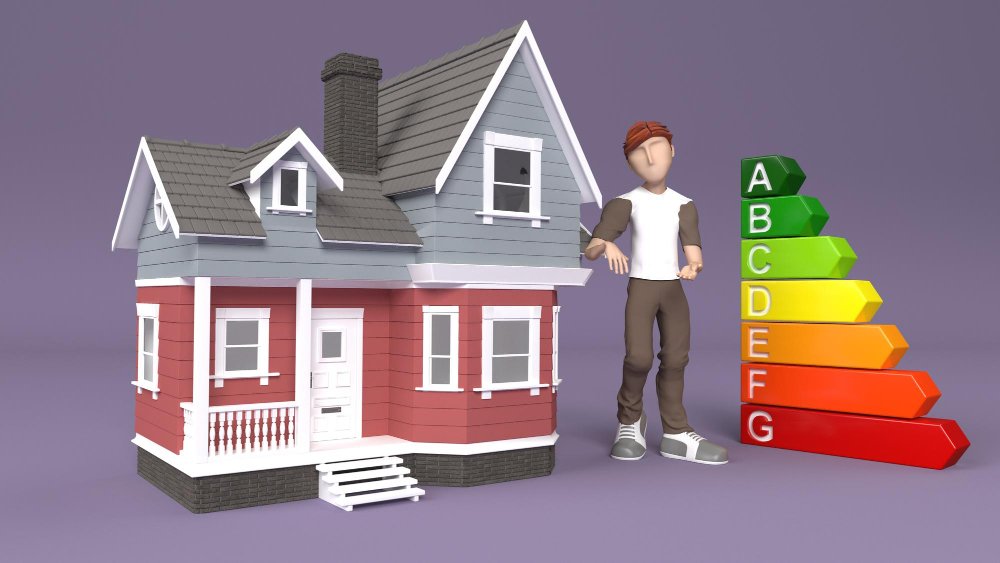If you’re planning to build a new home, add an extension, or carry out major renovations in Massachusetts, it’s crucial to know what triggers a HERS rating in Massachusetts. Missing this requirement can cause delays in your project approvals and occupancy permits. Here is a comprehensive breakdown to help homeowners, contractors, and builders stay compliant and improve energy efficiency outcomes.
Overview of HERS Ratings in Massachusetts
The Home Energy Rating System (HERS) is an industry-standard method for measuring a home’s energy efficiency. It provides a numerical score; the lower the number, the more energy-efficient the property is. A typical new home built to code scores around 100, while a net-zero energy home scores 0.
Massachusetts strongly integrates HERS ratings into its building codes to ensure homes are constructed or renovated to meet modern energy efficiency standards. This reduces overall energy consumption, saves homeowners on utility costs, and supports the state’s climate goals.
New Construction Requirements Triggering HERS Ratings
New Residential Builds in Massachusetts
Most new residential constructions in Massachusetts will require a HERS rating, especially if located within municipalities that have adopted the Stretch Energy Code. The Stretch Code is an optional, more stringent energy code under the Massachusetts building code framework that focuses on high energy performance.
Under the Stretch Energy Code:
- All new single-family and low-rise multi-family homes require a HERS rating.
- Builders must achieve a specific HERS index score to obtain a certificate of occupancy.
- The target HERS index varies depending on the code cycle. For example, the Stretch Code has required HERS scores of 55 or lower, and in some updates, scores as low as 42 or lower for fully electric homes.
Failing to achieve the target rating could mean delays in receiving final approval from local building departments.
Towns and Cities Adopting the Stretch Energy Code
Over 300 municipalities in Massachusetts have adopted the Stretch Energy Code. In these areas:
- HERS ratings are mandatory for new residential construction.
- Builders should consult with local code officials early to confirm specific requirements and target scores.
- The Stretch Code aligns with the state’s climate action goals and is a prerequisite for towns designated as Green Communities.
Therefore, if your construction project is in a Stretch Code town, plan for a HERS rating from design stage onwards to integrate energy-efficient systems and materials effectively.
Additions That Trigger HERS Ratings in Massachusetts
Large Additions Over 1,000 Square Feet
If you’re planning an addition to your home, be aware of these triggers:
- Additions greater than 1,000 square feet automatically require a HERS rating in Massachusetts under the Stretch Energy Code.
- This ensures the expanded area meets the same energy efficiency standards as new construction.
Doubling Existing Conditioned Floor Area
Alternatively, even if your addition is less than 1,000 square feet, it will require a HERS rating if:
- The addition doubles the existing conditioned floor area of your home.
Conditioned floor area refers to spaces that are heated or cooled, such as living rooms, bedrooms, and finished basements. Unconditioned areas like garages or attics are excluded.
For example, if your home has a conditioned floor area of 800 square feet and you build an 800-square-foot addition, you have doubled it, thus triggering the HERS rating requirement.
Ensuring Compliance During Addition Projects
Before starting construction:
- Consult with a certified HERS rater early in the design phase.
- Integrate recommended insulation, air sealing, window efficiency, and HVAC upgrades to achieve the required score cost-effectively.
This avoids last-minute design changes or added expenses near project completion.
Major Renovations and Remodels Requiring HERS Ratings
Level 3 Alterations Under IEBC
Significant renovations categorised as Level 3 alterations under the International Existing Building Code (IEBC) may also trigger a HERS rating requirement.
Level 3 alterations are defined as:
- Projects involving work on more than 50% of the existing building’s area, and
- Projects that involve a change of use or occupancy classification.
Examples include:
- Gut renovations where walls, ceilings, HVAC systems, and insulation are replaced or upgraded.
- Converting a commercial building into residential apartments.
- Adding new mechanical systems impacting a substantial portion of the structure.
These extensive renovations alter the building’s energy performance significantly, warranting a HERS assessment to ensure compliance with modern energy efficiency standards.
Benefits of HERS Ratings During Renovations
While some homeowners view HERS ratings as an additional cost, incorporating them during major remodels offers:
- Reduced long-term utility bills due to better energy efficiency.
- Increased property value and marketability for future resale.
- Assurance of meeting all state energy code requirements effectively.
Energy Efficiency Programs Triggering HERS Ratings
Participating in Local Incentive and Rebate Programs
If you plan to participate in local utility-sponsored energy efficiency programs, a HERS rating may be required to verify:
- The baseline energy usage of your home.
- Improvements achieved through weatherisation, insulation upgrades, or HVAC replacements.
Programs often require a certified HERS rater to evaluate the project to determine incentive eligibility. The rating process includes plan reviews, onsite inspections, blower door testing, and duct leakage testing.
Ensuring Eligibility for Maximum Rebates
By involving a HERS rater early, homeowners and builders can:
- Design energy-efficient systems to maximise incentives.
- Avoid missing out on rebates due to overlooked efficiency measures or non-compliance with program requirements.
Process of Obtaining a HERS Rating in Massachusetts
Hiring a Certified HERS Rater
A HERS rating can only be conducted by a certified HERS rater accredited through RESNET (Residential Energy Services Network). In Massachusetts, many raters are experienced with Stretch Code compliance for residential construction.
The typical process involves:
- Initial Plan Review: Reviewing construction plans to identify potential design improvements for better energy performance.
- Onsite Inspections: Conducting pre-drywall inspections to check insulation and air barrier installation.
- Performance Testing: Performing blower door tests to assess airtightness and duct leakage tests for HVAC efficiency.
- Final Rating Report: Providing a completed HERS certificate with the project’s final score.
Submission to Building Departments
For new construction and qualifying additions or remodels:
- Submit the final HERS rating report to the local building inspector as part of your documentation to obtain a certificate of occupancy.
Non-compliance could delay project approvals or result in costly retrofits to meet the target score.
Common Questions About HERS Rating Triggers in Massachusetts
Are Small Additions Exempt?
Additions smaller than 1,000 square feet that do not double the conditioned floor area generally do not trigger HERS ratings under the Stretch Code. However, energy efficiency standards under the base building code still apply.
Does Every Town Require a HERS Rating?
Only municipalities adopting the Stretch Energy Code mandate HERS ratings for new construction. However, due to its widespread adoption across Massachusetts, most towns enforce this requirement.
Can a HERS Rating Lower Construction Costs?
While obtaining a HERS rating involves testing fees, early integration of efficiency measures often leads to lower HVAC sizing requirements, reduced long-term utility costs, and eligibility for rebates, offsetting initial expenses.
Benefits of Meeting HERS Rating Requirements
Improved Energy Efficiency
Homes with lower HERS scores consume less energy for heating, cooling, and electricity, leading to significant savings for homeowners.
Increased Home Value
Energy-efficient homes with documented HERS ratings are often more attractive to buyers, commanding higher resale values.
Compliance with State Climate Goals
By meeting HERS rating requirements, builders and homeowners contribute to Massachusetts’ targets of reducing greenhouse gas emissions and transitioning towards a more sustainable built environment.
Final Thoughts
Understanding what triggers a HERS rating in Massachusetts is essential for anyone involved in residential construction or major renovations. In summary:
- New construction projects in Stretch Energy Code towns require HERS ratings.
- Large additions over 1,000 square feet or doubling existing conditioned floor area will trigger ratings.
- Major remodels classified as Level 3 alterations under the IEBC often require ratings.
- Participation in energy efficiency incentive programs may also necessitate a HERS assessment.
Proactive planning with certified HERS raters ensures code compliance, maximises energy efficiency, and provides long-term financial and environmental benefits for Massachusetts homeowners.



